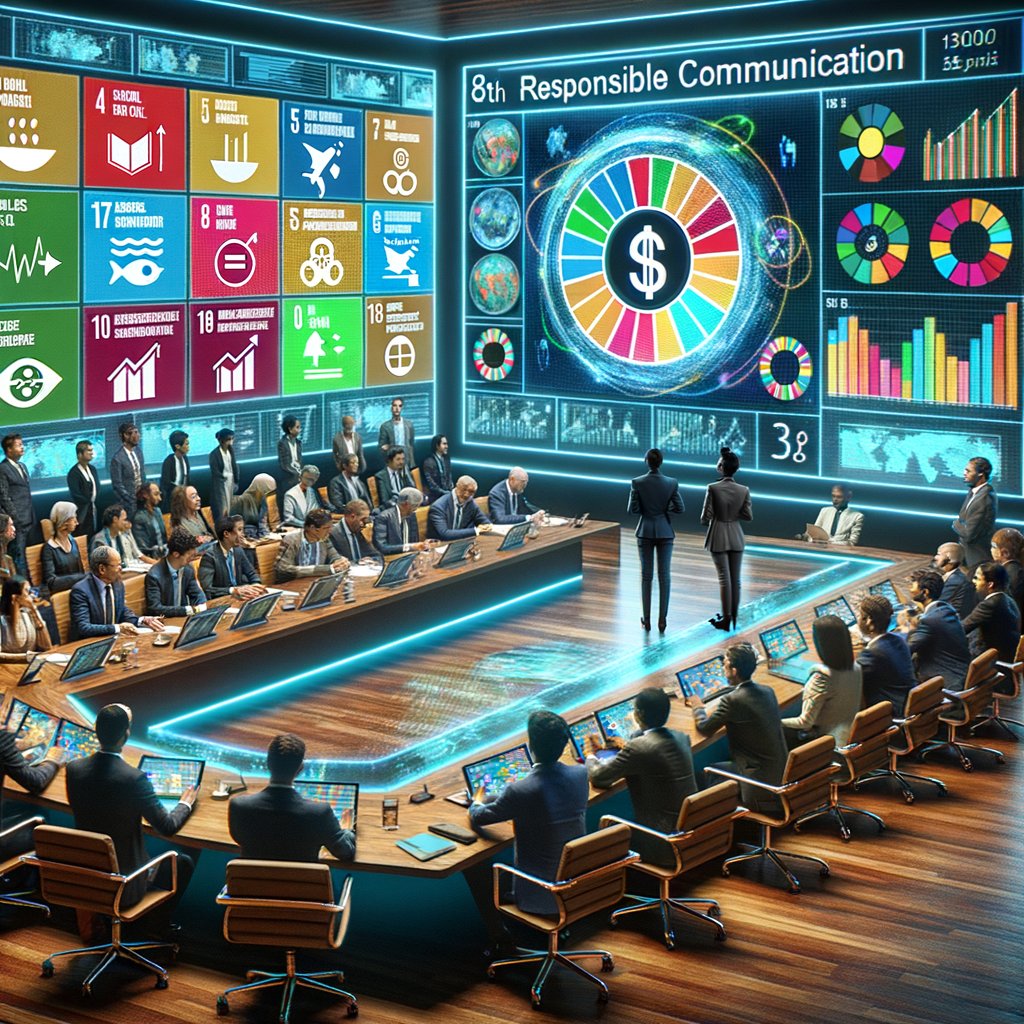Image created by AI
Enhancing Global Communication: The Crucial Role in Achieving Sustainable Development Goals
The clock is ticking towards the 2030 deadline set by the United Nations for achieving its Sustainable Development Goals (SDGs), a series of ambitious targets aimed at promoting a better and more sustainable future globally. However, progress has been patchy, with only 17% of these targets currently on track, according to the latest SDGs Report 2024. This highlights a critical need for enhanced communication strategies to bridge the knowledge gap and spur collective action towards these goals.
Communication professionals are being called upon to translate the SDGs into narratives that not only inform but resonate across diverse communities, whether they're in Mahalapye Village in Botswana or Manzini Village in eSwatini. This requires a systematic approach that integrates responsible and strategic communication as foundational to achieving the SDGs.
The Global Alliance for Public Relations and Communication Management has proposed an intriguing idea: adding an 18th SDG focused on "responsible communication". Such a goal would underscore the importance of ethical communication practices in driving forward societal objectives.
Furthermore, the 2024 SDGs Report emphasizes the critical role of data in effective storytelling, revealing that only 9% of national statistical offices feel they successfully safeguard and provide access to essential data. This pinpoints a significant gap in the tools available for communication professionals to accurately report on SDG progress, advocating for a professionalization within the field.
Training and continuous professional development are vital, as membership in recognized professional bodies can ensure that practitioners remain at the forefront of responsible communication practices. This professional elevation can help address not just local but global challenges, fostering a more balanced and fair progress across countries.
The necessity of enhancing communication strategies was also discussed at the recently concluded G20 summit in Rio De Janeiro, where Brazil passed the presidency to South Africa. Under the forthcoming presidency, South Africa aims to push the theme of Solidarity, Equality, and Sustainability, crucial for bridging disparities between the Global North and South.
The summit concluded with the establishment of the Global Initiative for Information Integrity on Climate Change. This aligns with the focus on responsible communication, as pointed out by Audrey Azoulay, director general of UNESCO, who emphasized supporting journalists and researchers tackling climate issues and combating disinformation.
The Global Alliance World Public Relations Forum 2024 in Bali, Indonesia, highlighted these themes under the banner "Purposeful Influence for the Common Good". Leading communication figures like Oscar Tshifure and Malesela Maubane advocated the paramount role of public relations in sustainability, signifying a collective stride towards integrating responsible communication within the global agenda.
Responsible communication stands as a pillar for not only achieving but tracking progress on all SDGs, potentially revolutionizing the way global objectives meet local action through clarity, integrity, and inclusivity in narrative building.



